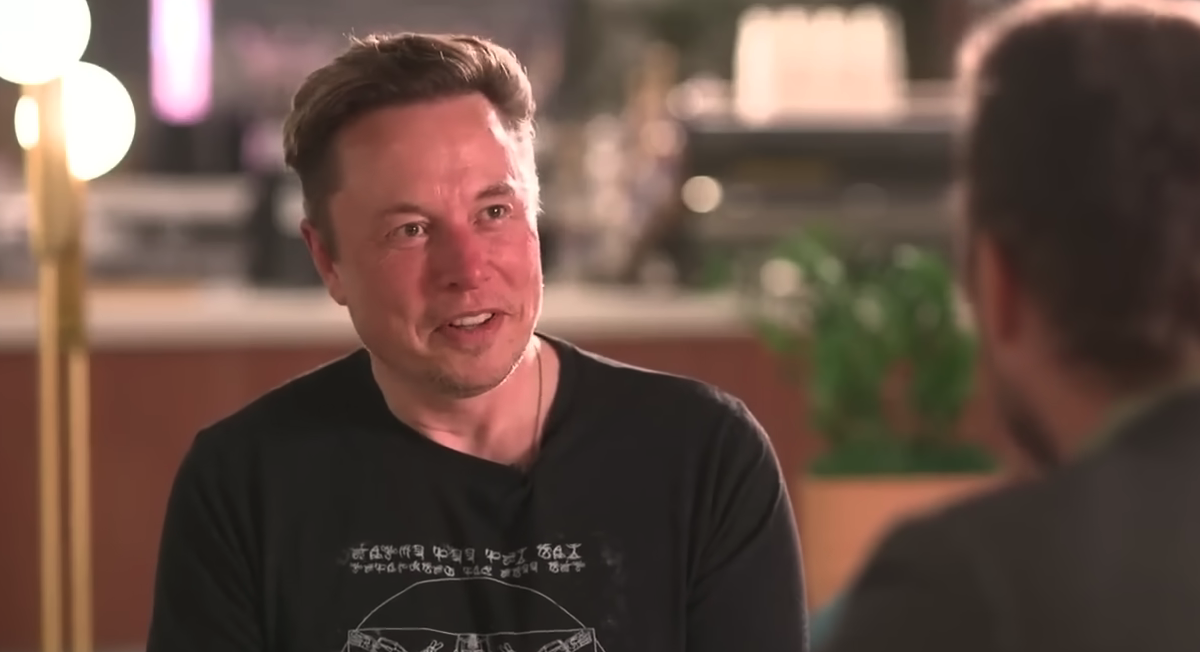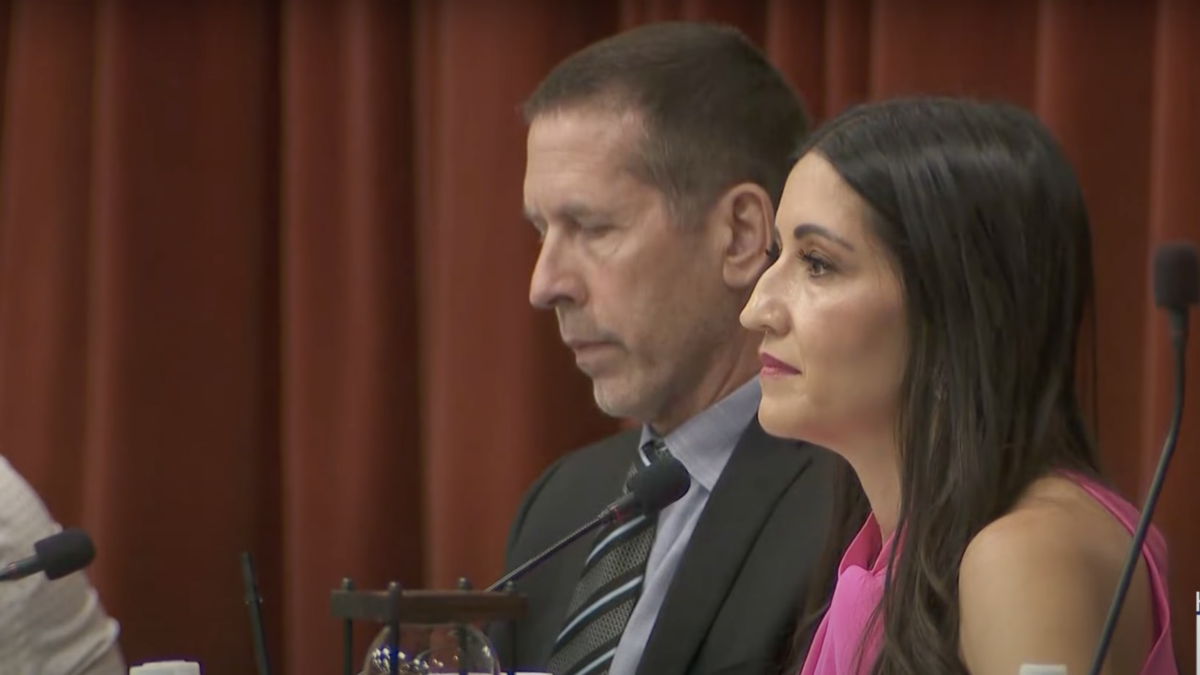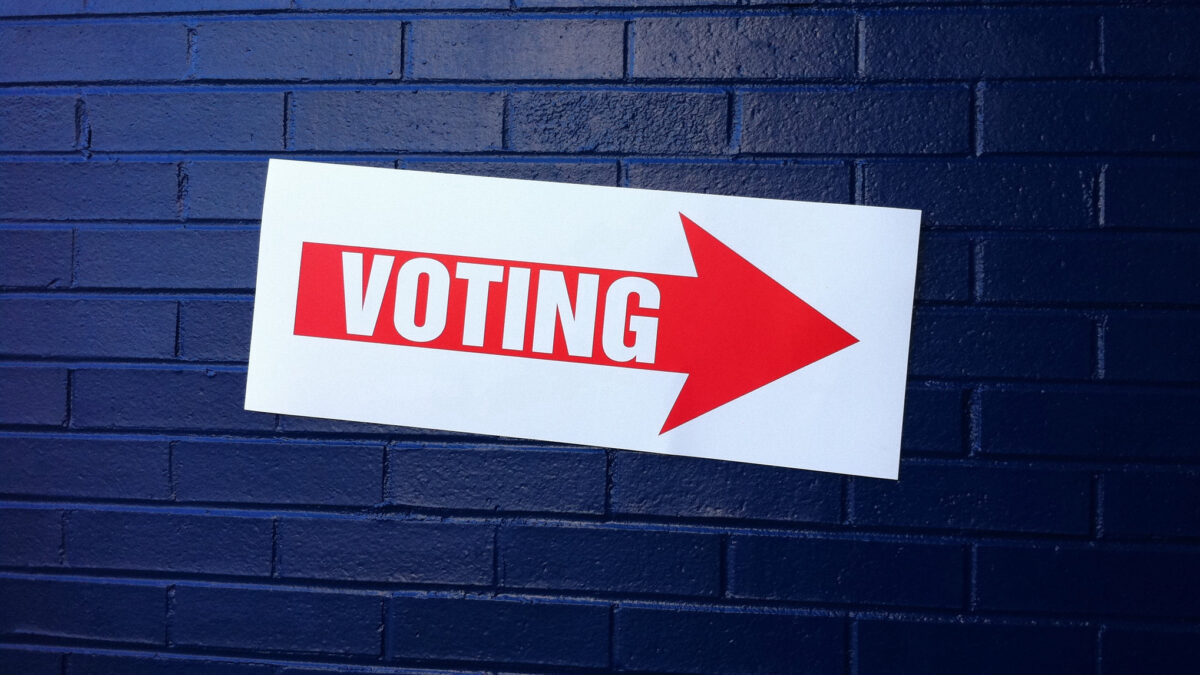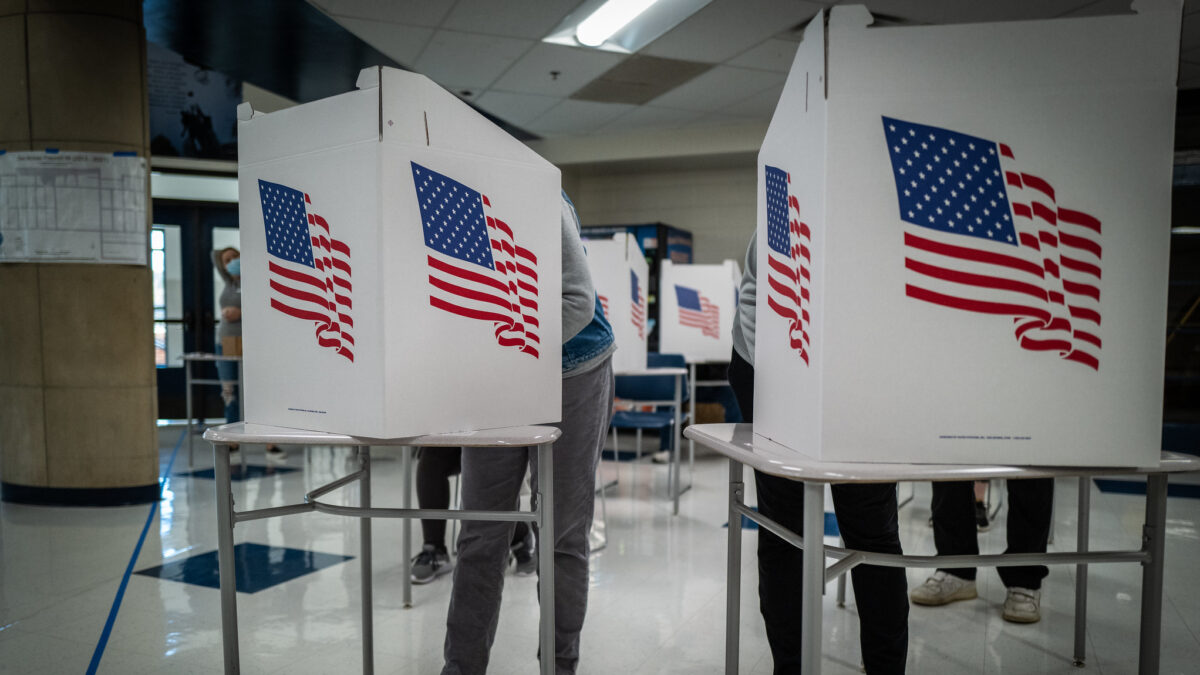It’s been just over a year since Elon Musk tweeted a picture of himself holding a sink in the Silicon Valley headquarters of the world’s most influential social media platform.
Conjuring a dad joke worthy of a man with 11 children, Musk posted: “Entering Twitter HQ — let that sink in!”
Musk’s actions since finalizing the $44 billion acquisition have more than made up for the opening groaner. During his first year at the helm of the company now known as “X,” Musk has taken several positive steps in line with his initial commitments to restore free speech on the platform.
No doubt, there’s much work to do — including a much-needed elimination and rethink of Musk’s “freedom of speech, not reach” governing philosophy, which we’ll explore below. But it’s fitting to start with a few major highlights from Musk’s first year.
Highlight 1: Exposing Government Pressure to Censor Content
For starters, Musk’s decision to release hundreds of thousands of emails between Twitter employees and officials in the federal government via the “Twitter Files” has had perhaps the most profound effect on restoring the public’s trust.
Tabbing independent journalists like Matt Taibbi, Bari Weiss, and Michael Shellenberger as recipients of the email trove, Musk took the gamble that by doing so, he would expose some of the worst examples of the government’s pressure on social media companies to censor. Musk’s gamble paid off. Big time.
Since the first round of reporting went live in early December 2022, the American public has been privy to online censorship attempts originating from the Biden administration White House, FBI, Department of Health and Human Services, the CDC, the surgeon general, the State Department’s Global Engagement Center, and more.
For years, the Biden administration has pressured Silicon Valley companies to silence views that conflict with the government’s approved talking points on issues as far-ranging as climate change, abortion, economic policy, the sexes, and Covid-19 policy.
In one instance leading up to the 2020 presidential election, an email shows Twitter (now X) executives moving to censor speech based on a single flag from Homeland Security. In another, an FBI official sent Twitter a long list of names suspected of “misinformation” — resulting in their immediate suspension.
While troubling enough, the censorship went beyond the ill-defined category of “misinformation.” In one email chain, for example, Facebook assures a White House official that it was also suppressing “often-true content” that conflicted with the government’s position.
Information divulged through the “Twitter Files” is prominently featured in a case, Murthy v. Missouri, now taken up by the U.S. Supreme Court. A ruling in that case could protect against future attempts by government entities to indirectly violate First Amendment freedoms by pressuring private companies to censor in ways the government cannot.
Even more recently, a report by the House Select Committee on the Weaponization of the Federal Government shed more light on the government’s coordination with Twitter and other social media giants to censor the speech of conservatives, including The Federalist’s Mollie Hemingway and Sean Davis.
Highlight 2: Dissolving the Orwellian ‘Trust and Safety Council‘
While accompanied by considerably less fanfare than the “Twitter Files,” Musk’s dissolving of the company’s so-called “Trust and Safety Council” in mid-December also marked a crucial step toward restoring free speech on the platform.
Introduced in 2016, the council was the company’s purported attempt to “strike the right balance between fighting abuse and speaking truth to power.” In reality, the group comprised around 100 organizations that over the years included highly partisan groups like the highly discredited Southern Poverty Law Center, GLAAD, and the Anti-Defamation League, and it wielded unchecked authority to throttle accounts and tweets — which it regularly used to silence political opponents.
As Taibbi reported, company employees, including the council’s head, Yoel Roth, were acting in lock-step with federal agencies including the FBI, Department of Homeland Security, and Department of National Intelligence.
Simply by pulling the plug on the council, Musk made significant progress in distancing his company from its well-earned reputation as a venue policed by far-left ideologues.
Highlight 3: Rolling Back ‘Misgendering’ Policy
Pre-Elon gatekeepers posed a big enough impediment to free speech. Yet at the heart of the platform’s censorship woes is a raft of problematic policies meant to enforce far-left orthodoxy on a host of consequential issues.
Perhaps best-known (and most frequently weaponized) among these policies has been the so-called “misgendering” policy, which punished account holders who refused to toe the line on gender ideology — especially when referring to well-known public figures who identify as the opposite sex. Implemented in 2018, the policy was used to censor and suspend insufficiently compliant accounts such as the Babylon Bee, which satirically tabbed federal official Rachel Levine as its “Man of the Year” in March of 2022.
The Bee’s suspension seems to have been the last straw for Musk. Already the majority shareholder at the time, since-revealed private messages involving Musk suggest that the incident motivated him in large part to make an offer to buy the company less than a month later.
Musk leveraged his authority in November 2022 to lift the Bee’s suspension, before eliminating the “misgendering” policy in April 2023, restoring the ability of users to weigh in on perhaps the liveliest issue in today’s public discourse.
Highlight 4: Canceling Ideological Cancelations
The Bee was just one of countless accounts restored by Musk during his first year. Just a month into his tenure, Musk indicated in a series of tweets the imminent reinstatement of accounts closed under the previous regime — with the exception of accounts that had “broken the law or engaged in egregious spam.”
Previously canceled accounts included elected Republicans in the federal government, along with conservatives such as Jordan B. Peterson. And while restoring those accounts would have been a victory for free speech in and of itself, Musk has gone much further. Reacting this June to employees’ attempt to cancel the Daily Wire’s streaming of “What is a Woman?” Musk not only allowed the documentary to go live on the platform, but he shared it with his millions of followers along with the message, “Every parent should watch this.”
Musk’s decision to override his employees’ censorious instincts has helped ferret out Silicon Valley silencers at the company. It also built trust among free-speech advocates who had been skeptical of Musk after his initial jailbreak failed to reinstate accounts like Federalist Senior Editor John Daniel Davidson’s — whose account had remained blocked until late March.
More recently, Musk promised to fund legal support to those who face discrimination by employers for posts on X. That’s a hefty promise, but Musk’s track record suggests it’s one he likely intends to keep.
Opportunity 1: Expanding the Offer to Cover Cancellation Expenses
To mark the first anniversary of Musk’s purchase, my colleagues at ADF International spearheaded an open letter inviting Musk to consider covering the costs of X users targeted by government entities for their posts on the platform.
Signed by a long list that includes Babylon Bee CEO Seth Dillon, Rod Dreher, R.R. Reno, journalist Andy Ngo, and former ambassador for religious freedom Sam Brownback, the letter calls attention to an alarming international trend where governments are punishing X users for their speech on the platform.
Most prominent on that list — if for no other reason than the lengthy nature of her state-imposed ordeal — is longstanding Finnish parliamentarian and grandmother Päivi Räsänen, who is awaiting a verdict from a Helsinki court after being criminally charged for a 2019 post that included a Bible verse responding to her church’s sponsorship of an LGBT pride event.
Päivi’s situation is paralleled in Mexico, where two public figures, Rodrigo Iván Cortés and Gabriel Quadri, have been convicted of “gender-based political violence” and placed on an offenders’ register for Twitter posts expressing their views on the sexes. Both have been ordered to publish a court-written apology on X every day for 30 days, three times a day, in what the open letter labels “a form of public humiliation.”
While these cases proceed through their respective court systems, European Union lawmakers are pushing to make “hate speech” a crime on the same legal level as human trafficking and terrorism.
The letter sums it up well: “If X is to be a free marketplace of ideas, everyone must be able to peacefully debate the issues of our time without fear of government punishment.”
Opportunity 2: Clarifying Content Moderation Policies
As I wrote when Musk first made his bid to purchase the platform, X’s unclear terms of use set the table for the very censorship he seemingly opposes. Musk’s elimination of the “misgendering” policy was a major move toward free speech, and it should serve as his blueprint forward as he continues his efforts to make X a legitimate free-speech platform.
In particular, Musk should eliminate X’s “hateful conduct” policy, which still permits employees to censor political and religious views they disagree with in the same way as the now defunct “misgendering” policy did. Under cover of this policy in March 2023, X employees temporarily locked out the aforementioned Davis for reporting on the so-called “Trans Day of Vengeance” that was planned to take place just days after the deadly shooting by a trans-identified assailant at Covenant Christian School in Nashville.
To Musk’s credit, his company reinstated Davis’ account, at which point the platform also lifted Davidson’s year-long suspension.
Finally, while a marked improvement on the prior policies, X’s “Freedom of Speech, Not Reach” enforcement philosophy still allows for viewpoint-based censorship. Publicly introduced by Musk in November 2022, the policy adds the step of notifying users when their posts are throttled or censored. As Musk explains in his tweet, “[n]egative/hate tweets will be max deboosted & demonetized, so no ads or other revenue to Twitter. You won’t find the tweet unless you specifically seek it out, which is no different from rest of Internet.”
There’s a word for this: “shadowbanning.” The ability to speak but not be heard is self-defeating, and that’s one primary censorship tactic Twitter deployed against conservative voices in the years leading up to Musk’s purchase. Even Musk’s tweet announcing the policy gives the game away. Relying on the unspecified terminology of “hate” — and even “negative” — lends itself to the very same censorship philosophy that has long plagued the company.
A true genius, Musk possesses a remarkable ability to reconsider his positions and adjust his thinking. Further, Musk’s actions in the year since he sent that tweet show an upward trajectory in his embrace of robust discourse free from ideological throttling. Now is the time to ditch these wrongheaded policies for good.









